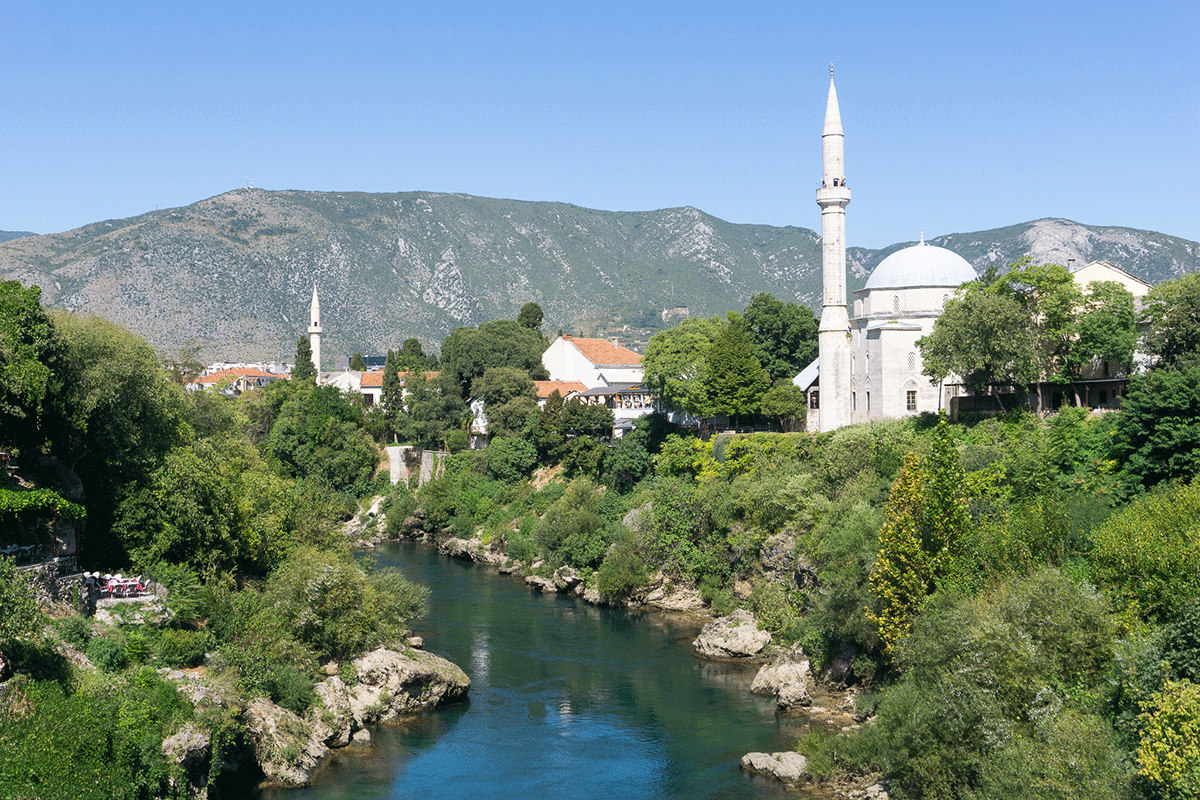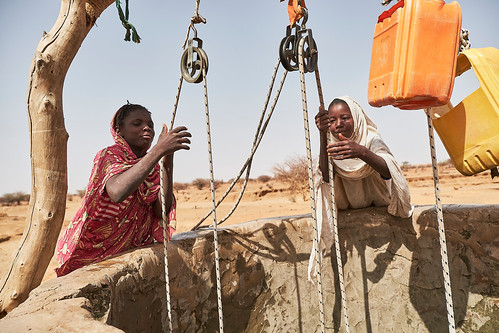
26th Feb 2020
A true melting pot
You’d be hard pressed to find a country more complex and beautiful than Bosnia and Herzegovina (often just referred to as Bosnia). The country has visible influences from past Ottoman and Austro-Hungarian rule which have filtered into modern day life. Added to this is the Slavic culture of the Balkan region, set in Mediterranean surroundings. Then there are the three main people groups with their different religions making up the population; Bosnians, Croats and Serbs (see fig.1). The result of all this is an incredible sense of fusion and disjointedness which is hard to characterise. It’s striking and unique.
These influences are particularly evident in the cities, from mosques to Catholic churches, Turkish restaurants to traditional coffee houses and modest dress to clubbing culture. Life is more fast-paced here but the people are warm and welcoming, placing high value on community and hospitality. Out in the countryside, groups of houses and patches of farmland are scattered between the stunning mountains and rivers. Farming is a challenging but wholesome way of life.
The scars of conflict
Many people might associate Bosnia with the war and ethnic cleansing in the early 90s. This was triggered by the breakup of Yugoslavia, which Bosnia was part of, and the ensuing division over independence. Violence broke out between the country’s ethnic groups, with Serbs going to war against a Bosnian-Croat alliance. The conflict is considered the most devastating war to hit Europe since WWII as more than 100,000 people lost their lives, and lasted until a peace agreement was signed in 1995.
Bosnia itself is still making sense of the aftermath on its society and politics. Bullet holes can be seen in the walls in cities and villages, and the capital city of Sarajevo has filled its mortar blast scars with red concrete, as a reminder. Politics is an extremely complex affair involving a presidential rotation of leaders from each of the three ethnic groups and also a carefully selected representation within government.
On the whole peace is highly valued and there are concentrated efforts to maintain it. However, disunity continues to affect society in subtle ways. Children from different ethnic backgrounds, for example, are often permanently separated at certain stages in their education. Sarajevo, once a Muslim-Croat stronghold during the war, is about 98% Muslim.
Burnout and return to Islam
Country-wide there are around two million Muslims in Bosnia; just over half of the population. Small numbers of long-term workers have been reaching out to them for decades. The end of the war brought a sense of openness and hope amongst them, and some small local fellowships were formed. These have since been hit with strong persecution, with many Muslim-background believers returning to their Islamic roots and church leaders experiencing disillusionment and burnout. There are now believed to be only 100-200 believers from a Muslim background in Bosnia. There is a small evangelical population from Catholic and Orthodox groups but historic religious tensions raise barriers to outreach.
God is on the move
Although there’s a lot of work to do there’s also now a growing sense of hope and expectation beginning to build. Local church leaders are making moves towards creating unity between themselves, seeking to shine as a beacon of hope to their many unreached Muslim neighbours. Long term workers are reporting a fresh wave of openness to the gospel. They ask for prayers for new workers to come and help them and be ready for the harvest as they believe God is preparing his people to have a significant impact in Bosnia. Now is the time to get involved!



